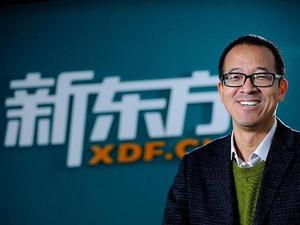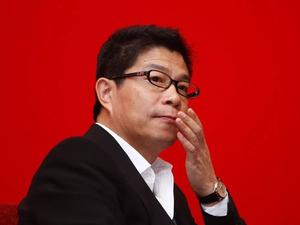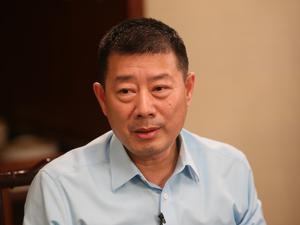安裝新浪財經客戶端第一時間接收最全面的市場資訊→【下載地址】
原標題:專訪《灰犀牛》作者米歇爾·沃克:禮貌地說,美國股市會是一場即將發生的災難。
原創 經濟學家圈

米歇爾.渥克(Michele Wucker),世界級暢銷書《灰犀牛》作者全球思想領袖,2007年古根海姆學者獎獲得者,2009年世界經濟論壇“青年領袖”,她身兼數職,擔任總部在紐約的國際政策研究所所長、芝加哥議會全球事務研究中心副主任、《國際金融評論》拉美辦公室主任。曾多次給《紐約時報》《華盛頓郵報》《國際政策》等媒體撰寫文章。
米歇爾·沃克:通過為低收入階層提供風險保護傘來促進消費
國內需求和消費對強勁的經濟至關重要。長期以來,刺激內需(即內循環)一直是中國面臨的挑戰,我很高興看到它受到了優先關注。成功平衡投資和消費將決定該政策的成功程度。增加消費的一種方法是為社會經濟階梯上位置較低的人們提供更好的風險保護傘。因為假如從較低的基數開始,在現有收入上增加任何額外可自由支配的收入都會產生更大的影響,所以同與較高收入人群有關的政策相比,這種方法可以更加快速地幫助提升消費。
如果人們可以不再那么擔心需要在緊急醫療情況下支付的費用,不再那么擔心自己的退休儲蓄,或擔心退休時需要幫助父母的花銷,那么他們就可以向經濟中注入更多資金。或許制定一個基礎收入的目標也是可以考慮的,要為那些處在受到沖擊的產業當中的人,由于年老而無法投身于獲得新技能的人,由于年輕而可以付出時間與精力來獲得新能力但需要資金支持的人提供幫助。不同于從未向下滲透到任何人的“滲透向下策略(trickle-down strategy)”,這種“向上滲透策略(trickle-up strategy)”可以幫助企業,進而幫助投資者,從而使得所有人獲益。
在下一個五年計劃中,應該確保優先解決我提到的三個很大的“灰犀牛”:解決金融脆弱性,氣候危機和不平等問題。所有這些預防風險的政策方向都同時支持著經濟增長。在抵制過度負債的同時,提供廣泛的信貸渠道將支持高質量的經濟增長;減緩氣候變化的措施將激勵創新、創造就業機會,并最終通過減緩氣候變化和減少極端天氣帶來的經濟影響來減少金融脆弱性。這兩者都將有助于解決不平等問題,但是通過更好地支持弱勢群體來減少不平等的現象,中國的經濟基礎將會加強。
Domestic demand and consumption are so important to a strong economy. Stimulatingdomestic demand --ie the internal loop—has long been a challenge for China andI am happy to see it getting priority attention. Balancing investment andconsumption successfully will determine how successful the policy is. One wayof increasing consumption is to provide a better risk umbrella to people loweron the socio-economic ladder. Because you are starting from a lower base andany additional discretionary income has a bigger impact, you can increaseconsumption more quickly than with higher income populations.
If people are notas worried about covering emergency health care costs or saving for retirementor having to help their parents in retirement, they can pump more money intothe economy.It would also be worth considering a targeted basic income forpeople in industries that are being disrupted and may be too old to invest ingaining new skills or are young enough that they can afford to invest time andenergy in new skills but need financial help. This trickle-up strategy would help businesses and in turn investors, so everyone wouldbenefit, unlike trickle-down strategies that never really trickle down toeveryone.The next five-year plan should make sure to prioritize addressing the threebig gray rhinos I mentioned: addressing.
經濟學家圈:如何看待當下的世界經濟發展?新冠疫情為世界帶來了什么影響?會不會改變世界經濟的發展趨勢?
米歇爾.渥克:當下的新冠疫情引起了人們對于一些尚未充分解決的、明顯的“灰犀牛”風險的重視。明顯的“灰犀牛”風險,正包括對于流行病爆發的應對措施,以及醫療服務獲取的不足。
這次的疫情已經降低了我們對于經濟增長前景的預測,同時也為世界經濟預測加上了一筆“未知的稅”。對于迅速采取行動并控制住新冠疫情的國家來說,經濟前景更加光明。但是在美國這樣大、并且對世界經濟有重大影響的國家,疫情的控制仍然遙遙無期,這也將使得世界經濟遭受更長時間的負面影響。而如果決策者和每個公民曾將這個風險用更嚴肅的態度面對,這份沖擊原本并不會持續這么長的時間。在疫苗面世并且一定數量的人已經收到疫苗以前,這種病毒將成為阻礙全球經濟真正反彈的重要力量。
我們將會繼續看到供應鏈的中斷,而其中最令人不安的是食物供應的中斷。我們將繼續看到不平等現象的加劇,以及美國等國家中社會不穩定的加劇。這種不平等將繼續拖累全球經濟,因為當更多的金錢掌握在超級富豪的手中時,留給擁有較低的人群的財富就更少,而他們是最需要這些資源去消費、并維持經濟繁榮的。
只要經濟問題持續,就會誘使太多的政策制定者在貿易、氣候、以及全球合作方面奉行以鄰為壑的政策。低息的措施會推遲公司、個人以及國家的債務危機,然而高水平的債務會繼續成為世界經濟的一個危險,特別是如果世界經濟的增長沒有更加快速地復蘇的話。
經濟學家圈:自新冠疫情爆發以來,美國股市快速上漲,對美國股市您有什么樣的評價?
米歇爾.渥克:禮貌地說,美國股市會是一場即將發生的災難。即使在近期出現虧損之后的價格,仍然與經濟上的現實脫節。就像我們在“荷蘭郁金香狂熱(DutchTulip Mania)”中看到的那樣,最終投資者將意識到他們手中持有的那些紙張的潛在價值不能合理地論證它們的價格。
最近有人對我說,當前的經濟形式讓他們想起了2007年。當時,房地產市場已經出現了嚴重的裂痕,但“多米諾骨牌”效應還沒有在經濟和市場中蔓延。這種情況正是我在今天感受到。就像在次貸危機中一樣,許多受到傷害的人也將會是“小人物”。美國股市吸引了許多小型的,所謂的“零售”投資者,其中許多人利用政府的刺激性支票來投資“仙股(市值跌至l元以下的股票)”。事實上機構投資者擁有更多的信息,并有更強的能力對抗它們,他們仍承受著巨大的風險。
“郁金香狂熱”:1637年發生在荷蘭,是世界上最早的泡沫經濟事件。當時由奧斯曼土耳其引進的郁金香球根異常地吸引大眾搶購,導致價格瘋狂飆高,然而在泡沫化過后,價格僅剩下高峰時的百分之一,讓荷蘭各大都市陷入混亂。
經濟學家圈:如何看待當下的中美關系,中美會脫鉤嗎?
米歇爾.渥克:我非常關切的是,我們已經看到了脫鉤的發生,特別是在科學技術領域。企業是不希望脫鉤的,但現任美國政府已經把中國塑造成了一個可怕的、莫須有的妖怪(bogeyman)來分散人們對于美國自身失敗的注意力。我希望并相信,下一屆美國政府將采取更具建設性的態度。事實上,當下的政策在投資領域對美國的傷害比對中國的要更大,因為中國對美國的外國直接投資(FDI)大幅下降,但美國對中國的投資在今年上半年有所增加。然而,這絕不僅僅是兩國國家之間的問題:整個世界已經受到了影響。科技領域的脫鉤會帶來一個低效的雙軌制系統。
在1970年代和1980年代,Betamax與VCR針對視頻錄制市場的的競賽并不是有建設性的競爭。在今天,我們看到的情況是更加糟糕的,特別是由于技術只有在全球兼容時,才是最有效的。我還感到關切的是,國家之間的商業聯系越緊密,地緣政治沖突的可能性就越低。
錄像帶格式戰指的是在1970年代末期至1980年代發生之數種不兼容的錄像機格式的競爭。它被認為是市場銷售競爭的經典案例。
經濟學家圈:您現在看到了什么“灰犀牛”?
米歇爾.渥克:現在在回答這個問題的時候,我會漸漸開始猶豫。因為這個概念,在人們為自己識別“灰犀牛”的時候最有效。但是總的來說,我一直將注意力集中在三大相互密切相關的全球政策大問題上:氣候變化,金融脆弱性和不平等問題。
中央銀行和投資者越來越多地發出警告,即氣候變化給沿海地區,干旱和容易發生野火的地區的房地產價值帶來巨大的金融風險,進而對保險公司,供應鏈,企業和市政財政產生巨大的潛在連環性影響。由于我們已經等待了很長時間才開始采取行動,因此從化石燃料行業撤出的投資將比其他情況更加陡峭,并產生更大的沖擊。
金融的脆弱性——特別是從實體經濟中吸走金錢的資產泡沫——加劇了不平等現象,拖累了經濟增長,反過來又加劇了金融的脆弱性。氣候變化加劇了不平等現象,因為對溫室氣體的貢獻最小的地方最容易受到極端天氣的影響,并且那些地方擁有最少的可以保護自己或重建的資源。氣候變化也正在解凍多年凍土并釋放出更多的病原體。
經濟學家圈:如何看待人民幣國際化?
米歇爾.渥克:人民幣國際化需要權衡取舍。從積極的一面看,人民幣國際化會使得許多交易變得更加簡單。并且,擁有除了美元以外的其他儲備貨幣也是有吸引力的。但是國際化也意味著放棄對貨幣政策的大量控制,而這可能進而造成潛在的內部經濟沖擊。無論做出什么決定,重要的是要考慮贏家和輸家,并確保最容易遭受意外后果的人受到保護。
經濟學家圈:國如何看待中國現在提出的“雙循環”?
米歇爾.渥克:國內需求和消費對強勁的經濟至關重要。長期以來,刺激內需(即內循環)一直是中國面臨的挑戰,我很高興看到它受到了優先關注。成功平衡投資和消費將決定該政策的成功程度。
增加消費的一種方法是為社會經濟階梯上位置較低的人們提供更好的風險保護傘。因為假如從較低的基數開始,在現有收入上增加任何額外可自由支配的收入都會產生更大的影響,所以同與較高收入人群有關的政策相比,這種方法可以更加快速地幫助提升消費。
如果人們可以不再那么擔心需要在緊急醫療情況下支付的費用,不再那么擔心自己的退休儲蓄,或擔心退休時需要幫助父母的花銷,那么他們就可以向經濟中注入更多資金。
或許制定一個基礎收入的目標也是可以考慮的,要為那些處在受到沖擊的產業當中的人,由于年老而無法投身于獲得新技能的人,由于年輕而可以付出時間與精力來獲得新能力但需要資金支持的人提供幫助。不同于從未向下滲透到任何人的“滲透向下策略(trickle-down strategy)”,這種“向上滲透策略(trickle-up strategy)”可以幫助企業,進而幫助投資者,從而使得所有人獲益。
經濟學家圈:“重塑全球產業鏈”在中國受到了廣泛的討論,您對此有什么看法?
米歇爾.渥克:毫無疑問,我們正在看到供應鏈的變化:地點的多樣化,隨著人們意識到手頭上有額外的庫存,對“及時制度(Just-In-Time)”精益供應鏈心態的重新思考。我不支持提高貿易壁壘的種種行為。
同時,我認為從氣候角度來看,關注區域供應鏈是有意義的。在世界各地運輸貨物會產生巨大的碳債務,因此,行進的距離越短,碳足跡越小越好。盡管我認識到計算商品的碳足跡是很復雜的,但我仍希望看到所有產品至少都包含一個粗略的估算,以便人們可以選擇并且鼓勵那些減少環境影響的公司。
及時制度(Just-In-Time):通過減少生產過程中的庫存和相關的順帶成本,改善商業投資回報的管理戰略。
經濟學家圈:對于中國的“十四五”,也就是下一個五年計劃,您有什么看法?
米歇爾.渥克:在下一個五年計劃中,應該確保優先解決我提到的三個很大的“灰犀牛”:解決金融脆弱性,氣候危機和不平等問題。所有這些預防風險的政策方向都同時支持著經濟增長。
在抵制過度負債的同時,提供廣泛的信貸渠道將支持高質量的經濟增長;減緩氣候變化的措施將激勵創新、創造就業機會,并最終通過減緩氣候變化和減少極端天氣帶來的經濟影響來減少金融脆弱性。
這兩者都將有助于解決不平等問題,但是通過更好地支持弱勢群體來減少不平等的現象,中國的經濟基礎將會加強。
經濟學家圈:您可以為中國的青年經濟學家們提些建議嗎?
米歇爾.渥克:不要只為其他經濟學家寫文章;要想一想如何將自己的研究同現實世界、而不只是理論聯系起來,同時要以能夠被接受、理解的方式交流自己的研究。
很重要的是要在公眾當中發展經濟素養,風險素養和政策素養。當人們了解了決策者必須做出的艱難權衡時,關于這些政策的溝通和落實就會更輕松,也不會產生太大的反對。
以下為英文全文:
Q: What‘s your opinion on the current world economicdevelopment? What changes do you think COVID-19 has brought to the world? Willit change the trend of the world economy?
A: COVID-19 has drawn attention to the cost of failing toadequately address obvious gray rhino risks like the threat of pandemics andweaknesses in access to health care. It already has cut short-term economicgrowth forecasts and has imposed an uncertainty tax on the global economy. Forcountries that moved quickly to get the novel coronavirus under control, theoutlook is brighter. But with COVID-19 nowhere close to under control in acountry as big and important to the global economy as the United States, theglobal economy is going to suffer longer than it would have if more Americans-both policy makers and individual citizens—had taken the risk more seriously.
Until we have vaccines and a critical mass of people hasreceived them, the virus will be a weight keeping the global economy from atrue rebound.
We will continue to see supply-chain interruptions, mostdisturbingly including food. We will continue to see increasing inequality,along with rising social instability in countries like the United States.
This inequality also will be a drag on economies because themore money is concentrated in the hands of the super-wealthy, the less there isfor the least-well off, who need it the most, to consume and keep economieshumming.
And as long as there are economic troubles, too many policymakers will be tempted to pursue beggar-thy-neighbor policies on trade, climateand global cooperation in general.
Low interest rates will postpone debt crises for companies,individuals, and countries, but high debt levels remain a danger for the globaleconomy especially if growth does not pick up more quickly.
Q: Since COVID-19, U.S. stocks have risen rapidly, whatdo you think of the U.S stock market?
A: Put politely, the US stock market is a disaster waiting to happen. Pricesare way out of touch with economic reality, even after the recent losses. Andjust as we saw with the Dutch Tulip Mania,eventually investors will realize that the underlying value of the paper theyhold does not justify its price. Someone said to me recently that the currenteconomy reminds them of 2007, when the deep cracks in the housing marketalready were showing but the domino effect had not yet rippled through theeconomy and markets. That’s what it feels like today to me too. Just like inthe subprime crisis, many of the people hurt will be the “little guys.” The USstock market has attracted many small, so called “retail” investors, many ofwhom used their government stimulus checks to invest in penny stocks. They aretaking big risks despite the fact that institutional investors have moreinformation and the power to move against them.
Q: What‘s your view on the relationship between U.S.and China, is there a risk of decoupling?
A: I am deeply concerned that we are already seeing decoupling, particularlyaround technology. Businesses do not want decoupling, but the currentadministration in the United States has made China the bogeymanto distract Americans from its own failings. I hope and believe that the nextUS administration will take a much more constructive approach.
In fact, the current policies have hurt the US far more thanChina on the investment side, as foreign direct investment from China into theUnited States has plummeted but U.S. investment into China rose for the firsthalf of the year. But it’s not just a matter of our two countries: the wholeworld is affected. Decoupling in technology will result in an inefficient,two-track system. The Betamax versus VCR competition for the video recordingmarket in the 1970s and 1980s was not a constructive competition. What we areseeing today is far worse, especially since technology is most useful when itis compatible globally. I also am concerned because the closer commercial tiesare between nations, the lower the odds of geopolitical conflicts.
Q: What are the “Gray Rhinos” you see sofar?
A: I have begun to hesitate to answer this question because the concept worksbest when people identify gray rhinos for themselves. But in general I havebeen focusing my attention on a trio of big global policy issues that areclosely related to each other: climate change, financial fragilities, and inequality. Central banks and investors have increasingly sounded the warningthat climate change poses huge financial risks to real estate values in coastaland drought and wildfire-prone areas and thus in turn to insurers, supplychains, businesses, and municipal finances, creating a huge potential dominoeffect. Because we have waited so long to act, the withdrawal of investmentfrom fossil fuel industries will be steeper and create a bigger shock than itwould have otherwise. Financial fragilities –in particular asset bubbles thatare sucking money out of the real economy—worsen inequality and drag downeconomic growth which in turn worsens financial fragilities. And climate changeworsens inequality because the places that have contributed the least togreenhouse gases are the most vulnerable to extreme weather and have the leastresources to protect themselves or rebuild. Climate change also is thawing permafrost and releasing morepathogens.
Q: How do you think of RMB‘s internationalization?
A: There are trade-offs to the internationalization of the RMB. On thepositive side, it makes many transactions simpler. And having an additionalalternative reserve currency to the dollar is attractive. Butinternationalization also means giving up a lot of control over monetary policyand in turn could create potential internal economic shocks. In whateverdecisions are made, it’s important to consider the winners and losers and makesure that those who are most vulnerable to unintended consequences areprotected.
Q: China has now proposed a ‘dual loop’ strategy whichfocuses on the internal loop, what do you think of it?
A: Domestic demand and consumption are so important to a strong economy. Stimulatingdomestic demand --ie the internal loop—has long been a challenge for China andI am happy to see it getting priority attention. Balancing investment andconsumption successfully will determine how successful the policy is. One wayof increasing consumption is to provide a better risk umbrella to people loweron the socio-economic ladder. Because you are starting from a lower base andany additional discretionary income has a bigger impact, you can increaseconsumption more quickly than with higher income populations. If people are notas worried about covering emergency health care costs or saving for retirementor having to help their parents in retirement, they can pump more money intothe economy. It would also be worth considering a targeted basic income forpeople in industries that are being disrupted and may be too old to invest ingaining new skills or are young enough that they can afford to invest time andenergy in new skills but need financial help. This trickle-up strategy would help businesses and in turn investors, so everyone wouldbenefit, unlike trickle-down strategies that never really trickle down toeveryone.
Q: The reshaping of the global industrial chain is nowwidely discussed in China, what‘s your opinion on it?
A: Definitely we are seeing supply chain changes:diversification of locations, re-thinking of the “just in time” lean supplychain mentality as people realize that having extra inventory on hand. I do notsupport efforts to raise trade barriers. At the same time, I think thatfocusing on regional supply chains makes sense from a climate perspective.Transporting goods all around the world creates a tremendous carbon debt, sothe less distance things travel and the smaller carbon footprint, the better.While recognizing that calculating carbon footprints of goods is complicated, Iwould like to see all products include at least a rough estimate so that peoplecan choose and reward companies that reduce their environmental impact.
Q: China is formulating the next five-year plan(2021-2025), can you give some suggestions?
A: The next five-year plan should make sure to prioritize addressing the threebig gray rhinos I mentioned: addressing financial fragilities, the climatecrisis, and inequality. All of these are risk prevention policy directions thatalso support growth. Providing broad access to credit while discouraging overindebtedness will support quality growth. Climate mitigation measures will spurinnovation, create jobs, and ultimately can reduce financial fragilities byslowing climate change and the economic impact of extreme weather. Both willhelp to address inequality, but by reducing inequality through better supportto vulnerable populations China will strengthen the foundation of the economy.
Q: Can you give some advice to the young economists inChina?
A: Don‘t just write for other economists; think about ways torelate your work to the real world, not just theory, and to communicate it inan accessible way. It’s so important to develop economic literacy, riskliteracy, and policy literacy among the public. When a population understandsthe difficult trade-offs that policy makers must make, it is easier tocommunicate and implement those policies with less opposition.
免責聲明:自媒體綜合提供的內容均源自自媒體,版權歸原作者所有,轉載請聯系原作者并獲許可。文章觀點僅代表作者本人,不代表新浪立場。若內容涉及投資建議,僅供參考勿作為投資依據。投資有風險,入市需謹慎。

責任編輯:劉玄逸
APP專享直播
熱門推薦
收起
24小時滾動播報最新的財經資訊和視頻,更多粉絲福利掃描二維碼關注(sinafinance)










